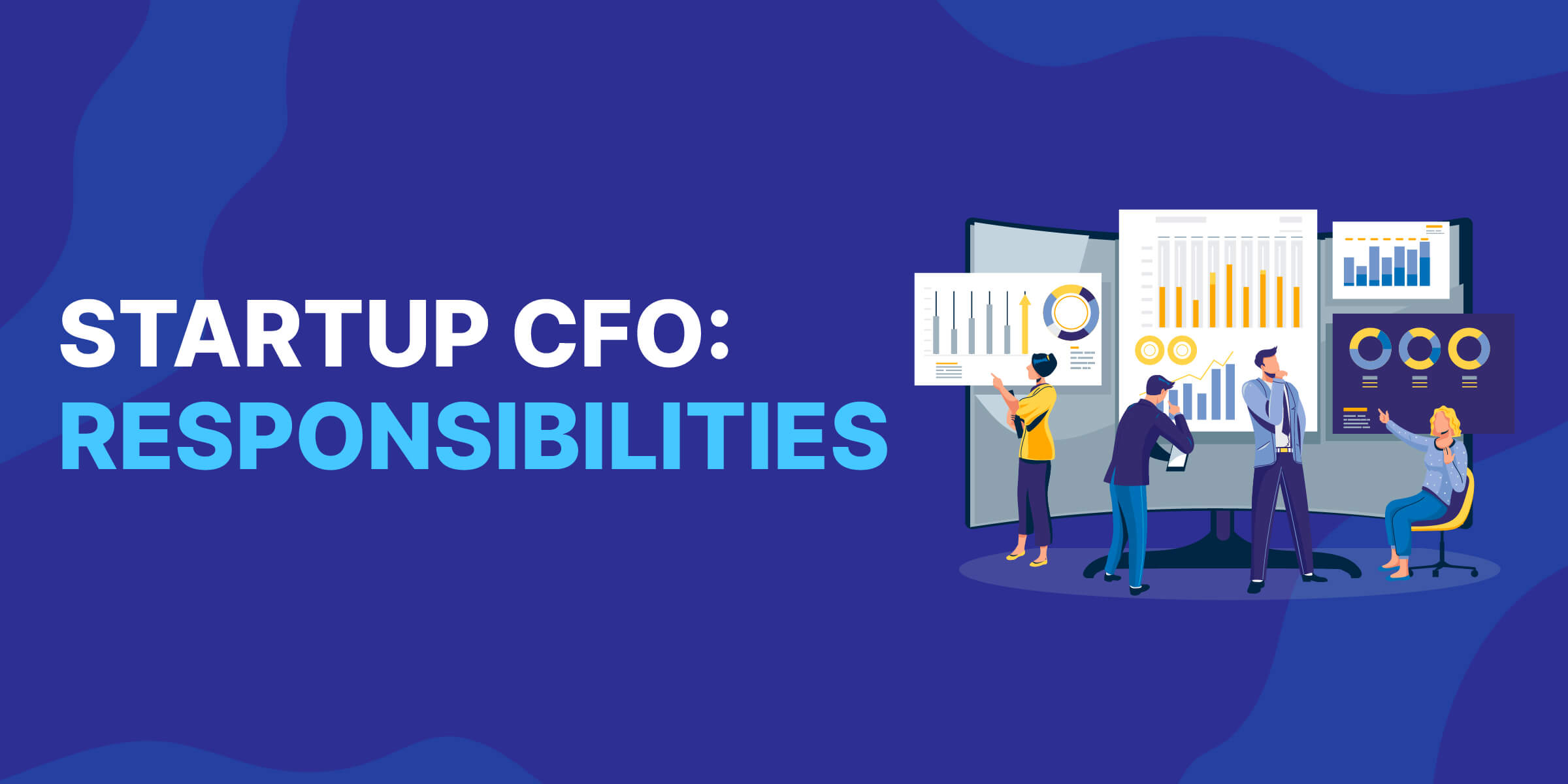Ready to hire a startup CFO but unsure where to begin? You're not alone. Many founders recognize the value of a CFO but grapple with the hiring process.
With startups, every decision is crucial, and hiring a CFO is no exception.
This guide offers actionable steps and tips to ensure you onboard the right financial leader for your venture.
Table of Contents
We offer this website completely free to our visitors. To help pay the bills, we’ll often (but not always) set up affiliate relationships with the top providers after selecting our favorites. However, we do our best not to let this impact our choices. There are plenty of high-paying companies we’ve turned down because we didn’t like their product.
An added benefit of our relationships is that we always try to negotiate exclusive discounts for our visitors.
Why We Like Toptal
Why a Startup Needs a CFO


A startup needs a CFO to navigate its unique financial challenges and opportunities, ensuring sustainable growth.
A CFO brings in-depth financial expertise and strategic insight to startups. Their expertise is essential for:
- managing cash flow
- securing investments
- optimizing financial operations
- mitigating risks
- ensuring compliance
By acting as a strategic partner to the CEO, a startup CFO aligns the company’s financial strategy with its overall vision. They enable informed, data-driven decision-making and contribute to the long-term success of the startup.
5 Signs You Need a Startup CFO


How do you know when a startup CFO is the right choice for your business? Here are a few telltale signs every startup should look for:
- Rapid Growth: When your startup experiences accelerated growth, managing financial complexities becomes crucial. A CFO can strategically guide through expansion phases, by directing correct allocation of resources and ensuring financial stability.
- Unsatisfactory Profitability: If profitability is not aligned with projections, a CFO can help. They provide insights into financial restructuring, cost management, and revenue enhancement, to steer the company towards financial health.
- Running Out of Cash/Need to Raise Capital: A CFO is essential to address capital insufficiency. They can identify suitable funding sources, manage cash flows, and fundraise to secure the necessary capital.
- Complex Financial Systems: Diversified revenue streams or complex transaction models can make financial operations intricate. In those cases, a CFO can implement efficient systems and controls. They ensure accurate and compliant financial management.
- Strategic Decision Making: A CFO’s expertise is invaluable in navigating mergers, acquisitions, or market entry strategies. They can help align these initiatives with the company's vision and goals.
How Much Does it Cost to Hire a Startup CFO?


Typically, a full-time CFO's salary ranges from $100,000 to over $200,000 annually. However, many startups initially opt for part-time CFOs or financial consultants. Outsourced freelance CFOs can cost between $1,500 and $5,000 per month.
Responsibilities of a Startup CFO


Startup CFOs manage the company’s financial actions. Their goal is to ensure long-term financial health and stability. The overarching responsibilities of a startup CFO include:
- Financial Management and Reporting: The CFO creates financial reports and ensures accurate reflection of the company’s financial position.
- Cash Flow Management: They are responsible for managing and optimizing the company’s cash flow to ensure operational continuity.
- Risk Management: The CFO identifies and mitigates financial risks to protect the company’s assets and sustainability.
- Strategic Planning: They play a pivotal role in shaping and implementing the company’s financial strategy. They aligned it with the company’s long-term vision.
- Investment and Fundraising: The CFO leads fundraising efforts and manages relationships with investors to secure the necessary capital.
- Cost and Expense Management: They optimize cost structure and manage expenses to enhance profitability and financial health.
- Compliance and Regulation: The CFO ensures the company’s financial activities comply with applicable laws and regulations to avoid legal repercussions.
Qualities to Look for in a Startup CFO


There are a few essential qualities to seek in a startup CFO including:
- Financial Expertise: Look for profound knowledge in finance, accounting, and economics to ensure meticulous management of the company’s finances.
- Strategic Thinking: Seek candidates who demonstrate an ability to develop and implement robust financial strategies aligning with the company’s vision.
- Adaptability: Opt for a CFO with a flexible approach, capable of navigating the fluctuating landscapes and challenges of startup environments.
- Communication Skills: Choose someone with exceptional interpersonal and communication skills to convey complex financial information clearly.
- Experience in Startups: Prioritize candidates with experience in startup ecosystems, understanding the nuances and pace of a burgeoning company.
- Risk Management Skills: Select a CFO with adept risk assessment and management abilities to safeguard the company’s assets and financial stability.
How to Hire a Startup CFO: A Step-by-Step Guide


Startup CFO Job Description
The first step to hiring a qualified startup CFO is to post a detailed job description. Outline the necessary experience you’re looking for. Below is a job description template that you can use on job boards.
Job Title:
Chief Financial Officer (CFO) – [Your Company Name]
Location:
[City, State] (or specify if remote)Job Type:
[Full-Time/Part-Time/Contract]Company Overview:
[Your Company] is a [Brief Description of Your Startup – Industry, Product/Service Overview]. We are looking for a dynamic, experienced, and strategic CFO to lead our financial operations and contribute to our startup business development.Responsibilities:
- Strategic Financial Planning: Develop and execute financial strategies aligning with the company's objectives and growth.
- Financial Management: Oversee financial operations, ensuring accuracy in reporting and compliance with legal standards.
- Cash Flow Management: Optimize and manage the company's cash flow to support operational continuity and expansion.
- Risk Management: Identify and mitigate financial risks, protecting the company’s assets and sustainability.
- Investment and Fundraising: Lead fundraising efforts and manage investor relations to secure necessary capital.
- Cost Management: Optimize the cost structure and manage expenses to enhance profitability.
Qualifications:
- Bachelor’s/Master’s degree in Finance, Accounting, or a related field. MBA or equivalent is preferred.
- Proven experience as a CFO or in a similar leadership role, preferably in a startup environment.
- Proficient in financial software and tools.
- Strong analytical, strategic planning, and organizational skills.
- Excellent communication and interpersonal skills.
Skills:
- Financial Expertise
- Strategic Thinking
- Adaptability and Flexibility
- Risk Management
- Effective Communication
What We Offer:
- Competitive Salary and Equity Options
- Flexible Work Schedule
- [Any Other Benefits – Health Insurance, Professional Development Opportunities, etc.]
How to Apply:
Qualified candidates are invited to submit their resume, cover letter, and any relevant credentials or work samples to [Your Email Address] with the subject line “CFO Application – [Your Name]”.
[Your Company] is an equal opportunity employer. We celebrate diversity and are committed to creating an inclusive environment for all employees.Interviewing CFOs
After you narrow down quality candidates, it’s time to interview your top three to five startup CFOs. The purpose of the interview is to better understand their background and assess their fit with your company’s needs. A few helpful questions to ask in a CFO interview include:
- Evaluate strategic alignment: How would you align our financial strategy with our overall company mission and objectives to drive sustainable growth?
- Assess experience with startups: Can you share an example of how you’ve navigated a startup through financial complexities and contributed to its growth?
- Risk Management: Describe a time when you identified and mitigated a significant financial risk for a company.
- Fundraising & Investment: Discuss your experience with fundraising and managing investor relationships, highlighting any unique challenges you’ve encountered and overcome.
- Problem Solving: Startups often face unexpected challenges. Can you provide an instance where you had to adapt quickly to a new financial complication and find a resolution?
- Financial Leadership: How have you fostered collaboration and financial literacy within cross-functional teams to ensure coherent financial decision-making?
Choosing a Startup CFO
Based on the interviews and candidate profiles, you must select a qualified startup CFO. You should also look into their references and perform background screenings to assess their reputation. Evaluate the following factors:
- Qualifications and background
- Experience with startups and similar industries
- Cultural fit
- Growth potential
Onboarding a CFO for Your Startup
After choosing your startup CFO, it’s time to onboard them. Proper onboarding ensures the smooth integration of your new CFO. A few key steps include:
- Set clear expectations that clearly define the role, objectives, and responsibilities.
- Foster collaboration with your teams by giving the new CFO opportunities to engage with stakeholders and other team members
- Provide them with any files and information they need to begin their role
- Give them any necessary logins and access to any platforms or channels they will need
Ongoing Feedback and Communication with Your Startup CFO
To ensure a beneficial long-term working relationship, provide regular feedback. Open the doors for ongoing communication and check in regularly.
This will help the CFO feel supported and comfortable making recommendations. It also demonstrates that you value their role and input, which is vital for a successful relationship.
Best Place to Find a Talented Startup CFO


Toptal is the top platform for finding a startup CFO due to its rigorous selection process. It admits only the top 3% of applicants, ensuring access to elite financial professionals.
These CFOs have proven experience, deep financial acumen, and adaptability, critical for startup environments. Toptal’s global network allows startups to find CFOs with diverse skills and backgrounds, tailored to their specific needs.
Why We Like Toptal
- Top Talent: Get access to elite, pre-screened candidates (only accepts the top 3%)
- Flexibility: Ideal for long-term or shorter-term specialty projects
- 14-Day Risk-Free Trial: Only get billed if you're satisfied
Frequently Asked Questions
Why should I hire a startup CFO?
Hiring a CFO is crucial for startups to manage finances, ensure legal compliance, optimize business plans, and secure investments, contributing to sustainable growth and business development.
At which stage does a startup need a CFO?
Startups generally need a CFO once they are in the growth phase and require sophisticated financial management, typically post-Series A funding. Early-stage startups can initially opt for part-time CFOs.
What qualities do I need in a startup CFO?
A startup CFO needs financial expertise, strategic thinking, adaptability, strong communication skills, an understanding of the startup ecosystem, and experience in fundraising and financial planning.
What size company needs a CFO?
Companies, regardless of size, benefit from a CFO once complexity in financial management arises. Typically, when a company reaches $10M in revenue or has substantial investment and scaling plans, a CFO is essential.



















